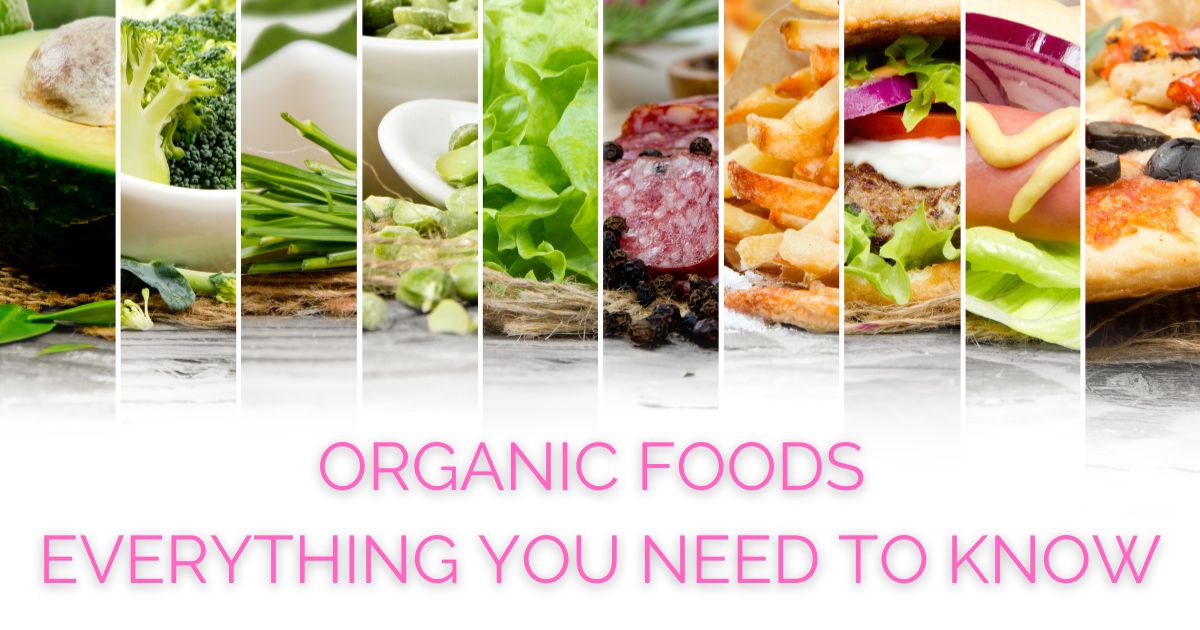Introduction to Organic Foods
Definition and Concept of Organic Foods
Organic foods refer to agricultural products that are grown and produced without the use of synthetic pesticides, genetically modified organisms (GMOs), sewage sludge, or ionizing radiation. These foods are cultivated through a holistic approach that focuses on promoting soil health, biodiversity, and sustainable farming practices. By avoiding the use of chemical fertilizers and pesticides, organic farmers aim to preserve the natural integrity of the ecosystem and ensure the safety and quality of the food we consume.
Key Principles and Standards for Organic Farming
Organic farming operates on several fundamental principles that guide its practices. These include prioritizing soil health and fertility, promoting ecological balance, maximizing the use of renewable resources, and preserving biodiversity. Organic farmers rely on natural methods such as crop rotation, companion planting, and the use of organic fertilizers to nourish the soil and protect crops from pests. Additionally, organic farming standards set strict guidelines regarding the usage of synthetic substances, ensuring that the organic certification guarantees the absence of harmful chemicals.
The Growing Global Demand for Organic Foods
Over the past few decades, there has been a significant surge in the global demand for organic foods. Consumers have become increasingly aware of the potential health and environmental risks associated with conventional farming practices, leading them to seek out organic alternatives. According to the Organic Trade Association (OTA), the global organic market has experienced continuous growth, with total sales reaching $110 billion in 2020. This increasing demand reflects a growing preference for food that is produced sustainably, supports local farmers, and contributes to a healthier planet.
Benefits and Advantages of Organic Foods
Enhanced Nutritional Value and Health Benefits
Organic foods are renowned for their superior nutritional content compared to conventional foods. Studies have shown that organically grown fruits and vegetables can have higher levels of vitamins, minerals, and antioxidants. This is partly due to the absence of synthetic pesticides and fertilizers, which allows plants to develop their natural defenses and produce higher concentrations of beneficial compounds. Furthermore, organic animal products, such as meat and dairy, are often richer in essential fatty acids, such as omega-3, due to the animals’ natural pasture-based diets.
Reduced Exposure to Chemicals and Pesticides
One of the primary advantages of consuming organic foods is the significantly reduced exposure to harmful chemicals and pesticides. Conventional farming practices rely heavily on synthetic pesticides, which have been linked to various health issues, including hormone disruption and neurological disorders. Organic farming, on the other hand, prohibits the use of these potentially harmful substances, ensuring that the food we consume is clean and free from chemical residues. Choosing organic alleviates concerns about pesticide exposure and promotes a healthier lifestyle overall.
Positive Environmental Impact and Sustainable Farming Practices
Organic farming practices prioritize sustainability and environmental conservation. By avoiding synthetic fertilizers and pesticides, organic farmers protect the soil from degradation, prevent water pollution, and preserve biodiversity. Organic farms often use techniques such as composting, crop rotation, and natural pest control to maintain the balance of ecosystems. These practices not only contribute to healthier soil and cleaner waterways but also support an array of beneficial organisms, including pollinators and natural predators, which further enhance the ecological balance.
Understanding Organic Certifications
Examining Different Organic Certifications and Labels
Various organizations worldwide provide organic certifications, each with its own set of standards and requirements. In the United States, the Department of Agriculture (USDA) oversees the National Organic Program (NOP), which establishes the guidelines for organic certification. The USDA Organic label guarantees that products have been produced following strict organic standards and have been verified by an accredited certifying agent. Other certifications, such as the European Union Organic Certification and Japan’s JAS Organic Certification, also ensure the adherence to specific organic criteria.
The Role of Third-Party Certification Bodies
To ensure the integrity and credibility of organic certifications, third-party certification bodies play a crucial role. These independent organizations audit organic farms and food processors to ensure they meet the necessary requirements for organic certification. These inspections verify compliance with organic standards, including soil management, pest control, and handling procedures. Certification bodies review records, conduct on-site inspections, and perform periodic sample testing to maintain the transparency and reliability of organic certifications.
Ensuring Authenticity and Avoiding Greenwashing
As the demand for organic foods grows, so does the risk of fraudulent practices and misleading claims. To combat this, consumers must be cautious and knowledgeable about organic certifications. Look for specific labels, such as USDA Organic, that have been accredited by recognized certification bodies. Additionally, supporting local farmers and organic producers who directly communicate their farming practices can provide reassurance and a deeper understanding of the authenticity of their organic products.
Organic Foods versus Conventional Foods
Nutritional Differences and Superiority of Organic Foods
Comparing organic and conventional foods reveals several nutritional differences that favor organic produce. Organic fruits and vegetables often contain higher levels of certain nutrients, such as vitamin C, iron, and magnesium. Additionally, organic milk and dairy products have been found to have higher levels of omega-3 fatty acids. Although the overall nutritional variance may be relatively small, consistently choosing organic foods can contribute to a more balanced and nutrient-rich diet in the long run.
Environmental Impact Comparison: Organic vs. Conventional Farming
The environmental impact of organic farming is significantly lower compared to conventional farming practices. Organic farming eliminates the use of synthetic fertilizers and pesticides that can contribute to soil degradation, water pollution, and harm to non-target organisms. Furthermore, organic farming methods, such as crop rotation and the use of cover crops, enhance soil health, increase carbon sequestration, and reduce greenhouse gas emissions. By choosing organic foods, individuals can actively support sustainable agricultural practices and minimize their carbon footprint.
Economic Implications and Accessibility of Organic Foods
There is a common misconception that organic foods are always more expensive than their conventional counterparts. While organic options may sometimes carry a slightly higher price tag, the affordability and accessibility of organic foods have been steadily improving. As demand for organic products grows, economies of scale, improved production practices, and increased competition are helping to reduce the price gap between organic and conventional options. Additionally, supporting local farmers and purchasing seasonal organic produce can often be a more cost-effective and sustainable choice.
Myths and Misconceptions about Organic Foods
Organic Foods are Expensive: Debunking the Price Myth
The perception that all organic foods are prohibitively expensive is a common misconception. While some organic products may indeed be priced higher due to factors such as production costs or rarity, there are numerous affordable organic options available. Seasonal produce, local farmers’ markets, and community-supported agriculture (CSA) programs are excellent sources of reasonably priced organic foods. By being resourceful and mindful of where and when to shop, individuals can embrace the organic lifestyle without stretching their budgets.
Organic Foods Are Not Supported by Scientific Evidence: Separating Facts from Fiction
Contrary to some beliefs, a substantial body of scientific research supports the benefits of organic foods. Numerous studies have demonstrated that organic crops generally contain fewer pesticide residues and a higher concentration of beneficial nutrients. Additionally, organic farming methods have been shown to have a positive impact on soil health, water quality, and biodiversity. While scientific research on organic foods continues, the existing evidence consistently shows that choosing organic can have several health and environmental advantages.
Organic Foods Lack Quality and Taste: Enhancing the Organic Culinary Experience
Another myth surrounding organic foods is the assumption that they lack quality and taste. In reality, the superior quality and taste of organic foods are highly dependent on various factors, including freshness, storage, and cooking techniques. By selecting organic produce at the peak of ripeness and enjoying them when they are in season, individuals can fully experience the exceptional flavors and textures that organic foods offer. Furthermore, exploring organic recipes and culinary techniques can elevate the enjoyment and satisfaction of incorporating organic foods into daily meals.
Organic Farming Techniques and Practices
Exploring Regenerative Agriculture and Soil Health
Regenerative agriculture is an emerging practice within the organic farming community that focuses on restoring and enhancing soil health. This approach emphasizes the use of cover crops, reduced tillage, and diversified crop rotations to rebuild organic matter, improve soil structure, and enhance nutrient cycling. By adopting regenerative practices, organic farmers can sequester more carbon in the soil, contribute to climate change mitigation, and promote long-term soil fertility and ecosystem resilience.
Composting, Crop Rotation, and Natural Pest Control
Composting, crop rotation, and natural pest control are vital components of organic farming practices. Composting allows organic farmers to recycle organic waste and transform it into nutrient-rich soil amendments. Crop rotation involves alternating the planting of different crops in successive seasons to break pest cycles, improve soil health, and reduce the need for synthetic pesticides. Natural pest control methods, such as beneficial insects, pest-trapping plants, and biological controls, effectively manage pests without resorting to harmful chemical interventions.
Biodynamic Farming: A Holistic Approach to Organic Agriculture
Biodynamic farming goes beyond organic practices by incorporating a holistic approach to agriculture. This method emphasizes the interconnectedness of the farm, its surroundings, and the cosmos. Biodynamic farmers use specific preparations, herbal mixtures, and lunar or cosmic calendars to enhance soil fertility, plant health, and overall farm resilience. Biodynamic farming principles promote the use of on-farm resources, biodiversity, and self-sustaining systems, making it an advanced form of organic agriculture that aligns with ecological and cosmic cycles.
Popular Organic Food Choices
Organic Fruits and Vegetables: The Ultimate Guide to Seasonal Produce
Organic fruits and vegetables offer a wide range of choices throughout the year, allowing individuals to enjoy the best produce during each season. Understanding the seasonality of organic fruits and vegetables is key to experiencing optimal flavor and nutritional value. Farmers’ markets, CSA programs, and online resources provide valuable information on which fruits and vegetables are in season and readily available. By following the natural rhythms of organic produce, individuals can enhance their culinary experiences and appreciate the variety of flavors that nature offers.
Organic Dairy Products: Milk, Cheese, and Yogurt
Organic dairy products, such as milk, cheese, and yogurt, offer an excellent alternative for those seeking higher quality and more sustainably sourced options. Organic dairy farming practices prioritize the welfare of animals, ensuring they have access to pasture and minimizing their exposure to synthetic hormones or antibiotics. Moreover, organic dairy products are free from pesticide residues, GMOs, and artificial additives. By choosing organic dairy, individuals can enjoy the rich taste and nutritional benefits of these products while supporting ethical and environmentally conscious farming practices.
Organic Meat, Poultry, and Eggs: Animal Welfare and Sustainable Farming
Opting for organic meat, poultry, and eggs not only ensures better taste and quality but also promotes animal welfare and sustainable farming. Organic animal farming requires animals to have access to organic feed, outdoor pasture areas, and the freedom to engage in natural behaviors. These practices contribute to better animal health and reduce the risk of antibiotic-resistant bacteria. By choosing organic animal products, consumers encourage responsible farming practices that prioritize animal welfare, environmental sustainability, and the overall health of the food chain.
Navigating the Organic Food Market
Tips for Identifying and Buying Genuine Organic Foods
Navigating the organic food market can sometimes be confusing, especially with various products claiming to be “natural,” “green,” or “eco-friendly.” To ensure the authenticity of organic foods, individuals should look for proper certification labels from recognized certification bodies such as the USDA Organic seal. Additionally, reading ingredient lists and familiarizing oneself with common organic terminology can provide valuable insights into a product’s organic content. When in doubt, seeking information from knowledgeable farmers, trusted organic retailers, or reliable online sources can help make well-informed choices.
Understanding Product Labels and Ingredient Lists
Understanding product labels and ingredient lists is essential for making informed decisions when purchasing organic foods. Labels that include terms such as “100% organic” indicate that all ingredients are organic. “Organic” labels mean that at least 95% of the product’s ingredients are organic, while “made with organic ingredients” indicates that at least 70% of the ingredients are organic. Reading ingredient lists is also crucial, as it allows consumers to identify any synthetic additives or non-organic substances that may be present in the product.
Making Informed Choices: Organic vs. Locally Sourced Foods
While both organic and locally sourced foods offer various benefits, individuals may find themselves torn between the two options. Organic foods prioritize sustainable farming practices and the reduction of synthetic chemicals, while locally sourced foods support the local economy, reduce transportation emissions, and often offer fresher produce. Making an informed choice involves considering personal values, availability, and cost. Supporting local organic farmers and choosing organic options whenever possible can often provide the best of both worlds, promoting sustainable farming practices and supporting the local community.
The Importance of Supporting Local and Organic Farmers
Community Supported Agriculture (CSA) Programs
Community Supported Agriculture (CSA) programs establish a direct connection between consumers and local farmers. By participating in a CSA, individuals become members and receive regular shares of fresh, seasonal produce directly from the farm. CSA programs provide financial support to farmers, ensuring a stable income and allowing them to focus on sustainable farming practices. Additionally, CSA members enjoy the benefits of locally grown, organic produce while building a closer relationship with the people who produce the food they consume.
Farmers’ Markets and Direct-to-Consumer Initiatives
Farmers’ markets are vibrant community spaces where local farmers and producers sell their goods directly to consumers. These markets provide an excellent opportunity to obtain fresh, organic products while engaging with the farmers themselves. Farmers’ markets often offer a diverse range of organic fruits, vegetables, meat, dairy, and other locally made goods, fostering a deeper connection between consumers and their food sources. Direct-to-consumer initiatives, such as online platforms or farm stands, also provide convenient access to organic products while supporting local farmers and eliminating middlemen.
Advocating for Organic and Sustainable Farming Policies
Supporting local and organic farmers goes beyond individual purchasing choices. Advocacy plays a pivotal role in creating policies that prioritize organic and sustainable farming practices. By engaging in grassroots movements, contacting local representatives, or supporting organizations dedicated to promoting organic agriculture, individuals can contribute to the development of policies that support a resilient and sustainable food system. Encouraging the transition to organic and sustainable practices at a wider scale ensures a healthier future for both consumers and the environment.
Organic Foods and Personal Health
Incorporating Organic Foods into a Balanced Diet
Integrating organic foods into a balanced diet can significantly benefit personal health. By prioritizing organic fruits, vegetables, whole grains, and lean proteins, individuals can increase their intake of vital nutrients while reducing exposure to pesticides and chemical residues. Emphasizing a diverse range of organic foods ensures a broader spectrum of essential vitamins, minerals, and antioxidants. Additionally, incorporating organic oils, nuts, and seeds can contribute to a healthier fat profile, supporting cardiovascular health and overall well-being.







